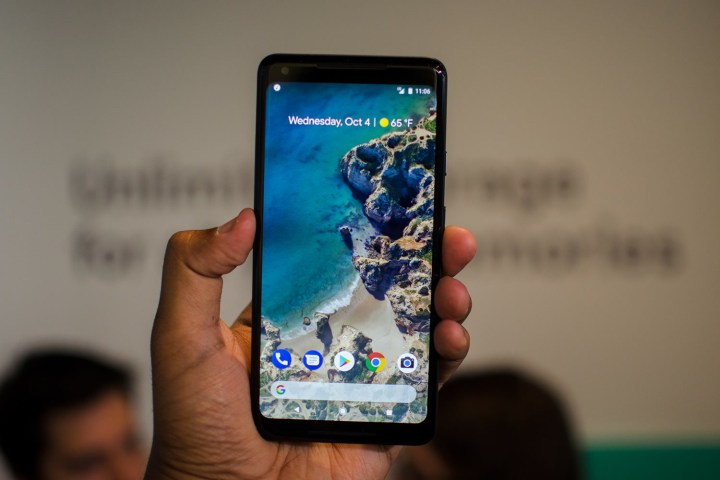
The new system is called “Fast Pair,” and it basically uses Bluetooth Low Energy and the phone’s location to automatically find Bluetooth devices that it’s close to and automatically pair with the simple tap of a button. In other words, all you’ll need to do is place the device close to your phone, and a little notification will pop up asking if you want to pair the device. Tap it and you’re good to go. You’ll even get a little picture of the device you’re pairing (yep, just like how Apple does things).

Of course, it’s important to note a few differences between Google and Apple’s attempts. While Apple partly uses its new W1 chip to connect to nearby devices like the AirPods, Google’s method still technically just uses Bluetooth — though the introduction of Bluetooth 5.0 should help things along.
The system will be especially helpful as we head into a wireless future. The Google Pixel 2 is only the latest in a string of devices to lose the headphone jack, meaning you’ll have to either use the included dongle or embrace wireless technology to use headphones, and many are using
One cool thing about the new feature is that it’ll be supported on devices running any operating system past Android Marshmallow, meaning the vast majority of phones will be able to take advantage of it. That’s good news — it means that even those with slightly older phones will get what could turn out to be a seriously convenient feature.
Unfortunately, not every device is supported by default — at launch, only Google Pixel Buds, Libratone Adapt On-Ear headphones, and Plantronics Voyager 8200-series headsets will support it. As time goes on, however, you’ll begin to see more devices popping up with compatibility. To take advantage of the feature, you’ll need to make sure you have Google Play Services 11.7 or later installed — and that’s rolling out over the next few days and weeks.

